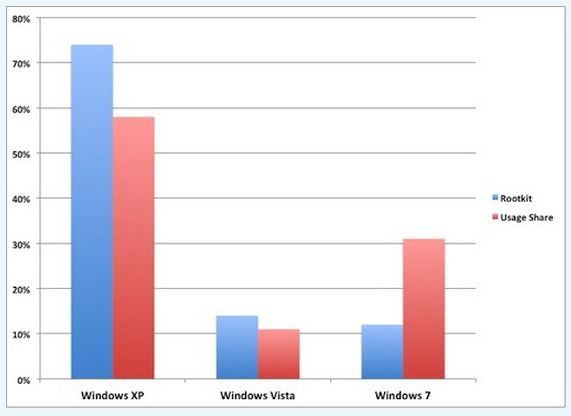
- #PROJECTLIBRE ROOTKIT AVAST HOW TO#
- #PROJECTLIBRE ROOTKIT AVAST UPDATE#
- #PROJECTLIBRE ROOTKIT AVAST SOFTWARE#
- #PROJECTLIBRE ROOTKIT AVAST CODE#
If the message is supposedly coming from a company with which you have no accounts, delete them. The lesson? Never click on any links supposedly sent from a financial services company. Once there, you might accidentally download a rootkit to your computer. If you do, you’ll be taken to a fake website. The messages will also ask that you click on a link. These messages may state that your account is about to be frozen or that you need to verify your identity. Often, these emails will look like they come from a legitimate bank or credit card provider. Phishing emails are sent by scammers who want to trick you into providing them your financial information or downloading malicious software, such as rootkits, onto your computer.

Keeping your operating systems, antivirus software, and other applications updated is the best way to protect yourself from rootkits.
#PROJECTLIBRE ROOTKIT AVAST UPDATE#
Updates to your computer’s applications and operating system can be annoying, especially when it seems as if there’s a new update for you to approve every time you turn on your machine. There is no way to magically protect yourself from all rootkits.įortunately, you can increase your odds of avoiding these attacks by following the same common-sense strategies you take to avoid all computer viruses, including these.
#PROJECTLIBRE ROOTKIT AVAST HOW TO#
How to defend against rootkitsīecause rootkits are so dangerous, and so difficult to detect, it’s important to exercise caution when surfing the internet or downloading programs. This can give them easy access to your computer and make it easy for them to steal your personal information.
#PROJECTLIBRE ROOTKIT AVAST CODE#
They just need to add their own code to it. Cybercriminals can use these to change how your operating system functions. These rootkits target the core of your computer’s operating system. The challenge here is that the infected programs will still run normally, making it difficult for users to detect the rootkit. Every time you run these programs, you will give hackers access to your computer. These rootkits might infect programs such as Word, Paint, or Notepad. They might also change the way standard applications work. Application rootkitĪpplication rootkits replace standard files in your computer with rootkit files. They only live in your computer’s RAM and will disappear once you reboot your system - though sometimes further work is required to get rid of them. The good news? These rootkits have a short lifespan. These rootkits will carry out harmful activities in the background. This type of rootkit hides in your computer’s RAM, or Random Access Memory. This means that this rootkit is activated even before your computer’s operating system turns on. A bootloader toolkit, then, attacks this system, replacing your computer’s legitimate bootloader with a hacked one. It loads your computer’s operating system when you turn the machine on. Your computer’s bootloader is an important tool. Hackers can use these rootkits to intercept data written on the disk.
#PROJECTLIBRE ROOTKIT AVAST SOFTWARE#
This type of malware could infect your computer’s hard drive or its system BIOS, the software that is installed on a small memory chip in your computer’s motherboard. The name of this type of rootkit comes from where it is installed on your computer. Here is a look at the different types of rootkits and how you can help protect against them. You might also accidentally download a rootkit through an infected mobile app. How do rootkits get on your computer? You might open an email and download a file that looks safe but is actually a virus. Sometimes the only way to completely eliminate a well-hidden rootkit is to erase your computer’s operating system and rebuild from scratch. Rootkits can also give hackers the ability to subvert or disable security software and track the keys you tap on your keyword, making it easy for criminals to steal your personal information.īecause rootkits can hijack or subvert security software, they are especially hard to detect, making it likely that this type of malware could live on your computer for a long time causing significant damage. Rootkits can contain a number of tools, ranging from programs that allow hackers to steal your passwords to modules that make it easy for them to steal your credit card or online banking information.


 0 kommentar(er)
0 kommentar(er)
